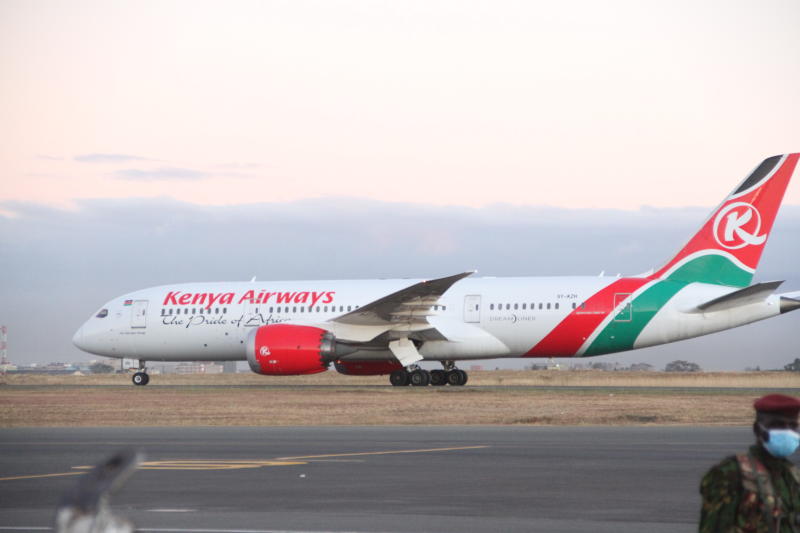×
The Standard e-Paper
Home To Bold Columnists

Kenya Airways (KQ) plane at Jomo Kenyatta International Airport (JKIA). [Edward Kiplimo, Standard]
Loss-making Kenya Airways (KQ) tops in Sh38.35 billion bailout unveiled yesterday to support struggling state-owned enterprises.